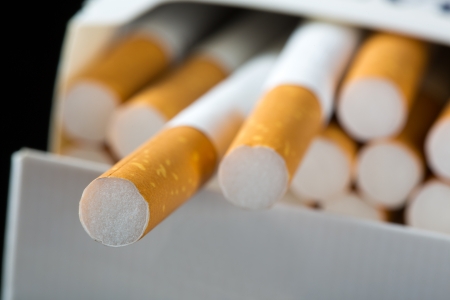
cigarette tobacco
MANILA, Philippines — The share of illicit cigarettes in domestic market sales rose this year as enforcement operations against unscrupulous traders lost steam, such that legislators on Monday sought to investigate four ports of entry which they pointed to as smuggling “hotspots.”
PMFTC Inc. director for illicit trade prevention Raul Academia told the House committee on ways and means that the tobacco firm’s latest survey showed that illicit cigarettes — smuggled or fake sticks, hence unpaid excise taxes — hiked their market share to 8.6 percent this year from about 5-5.5 percent last year.
Academia said it was hard to determine if the bulk of illicit sticks were mainly smuggled or illegally manufactured here as unscrupulous firms took advantage of both fronts.
Due to the harder times wrought by the pandemic, smugglers were bringing in more illegal imports from mostly neighboring Southeast Asian countries, Customs Assistant Commissioner Vincent Philip Maronilla said in a recent interview. Unlike before when illicit cigarettes came in droves from China, Maronilla said it was no longer the case now as the mainland cracked down on smugglers.
House ways and means committee chair and Albay Rep. Joey Salceda as well as AAMBIS-OWA Party-List Rep. Sharon Garin both pointed to private ports where alleged smuggled cigarettes entered the most — those in Cagayan de Oro, Clark, Subic, and Zamboanga.
Also, the Lower House, the Department of Finance (DOF), the Bureau of Customs (BOC), the Bureau of Internal Revenue (BIR), and the Philippine Economic Zone Authority (Peza) were already trying to nip in the bud flourishing local manufacturing of illicit cigarettes. Maronilla said these domestic and foreign manufacturers registered with economic zones to avail of tax and other investor incentives for their export operations; however, some companies sell their products locally — a violation of their ecozone registration.
Finance Assistant Secretary Dakila Napao said Peza now allowed BOC and BIR to monitor sectors inside ecozones that may be engaged in illicit trade, including that of cigarettes.
Nueva Ecija Rep. Estrellita Suansing flagged the BIR’s report at the hearing showing a declining number of enforcement activities against illicit trade. To recall, the BIR and the BOC — the country’s two biggest tax-collection agencies — had formed a “strike team” against illegal cigarettes in anticipation of a surge in smuggled and counterfeit cigarettes after the government raised “sin” taxes.
Since 2018, the government under the Tax Reform for Acceleration and Inclusion (TRAIN) Act and two subsequent new sin tax laws further jacked up the excise taxes slapped on cigarettes, e-cigarettes, and alcohol drinks to raise more revenues and finance the implementation of the universal health care program signed into law by President Duterte in 2019.
BIR director Beverly Milo said the strike team so far in 2021 conducted five raids and filed three tax-evasion cases against illegal cigarette traders. BIR data showed enforcement went down from 12 raids in 2020, 11 in 2019, and 14 in 2018.
Asked why there were fewer enforcement activities this year, Milo said the BIR also had fewer revenue personnel in the field amid prolonged COVID-19 quarantine restrictions.
BIR estimates showed that the 2.5 million illicit cigarette packs it confiscated so far this year deprived the government of about P123.3 million in foregone tax revenues.
For the BOC’s part, Maronilla told legislators that the agency apprehended 102 traders as of end-November, which led to the seizure of 38,827 master cases or P1.3-billion worth of illicit cigarettes. Foregone excise from these confiscated illegal tobacco products was estimated to reach P970.6 million.